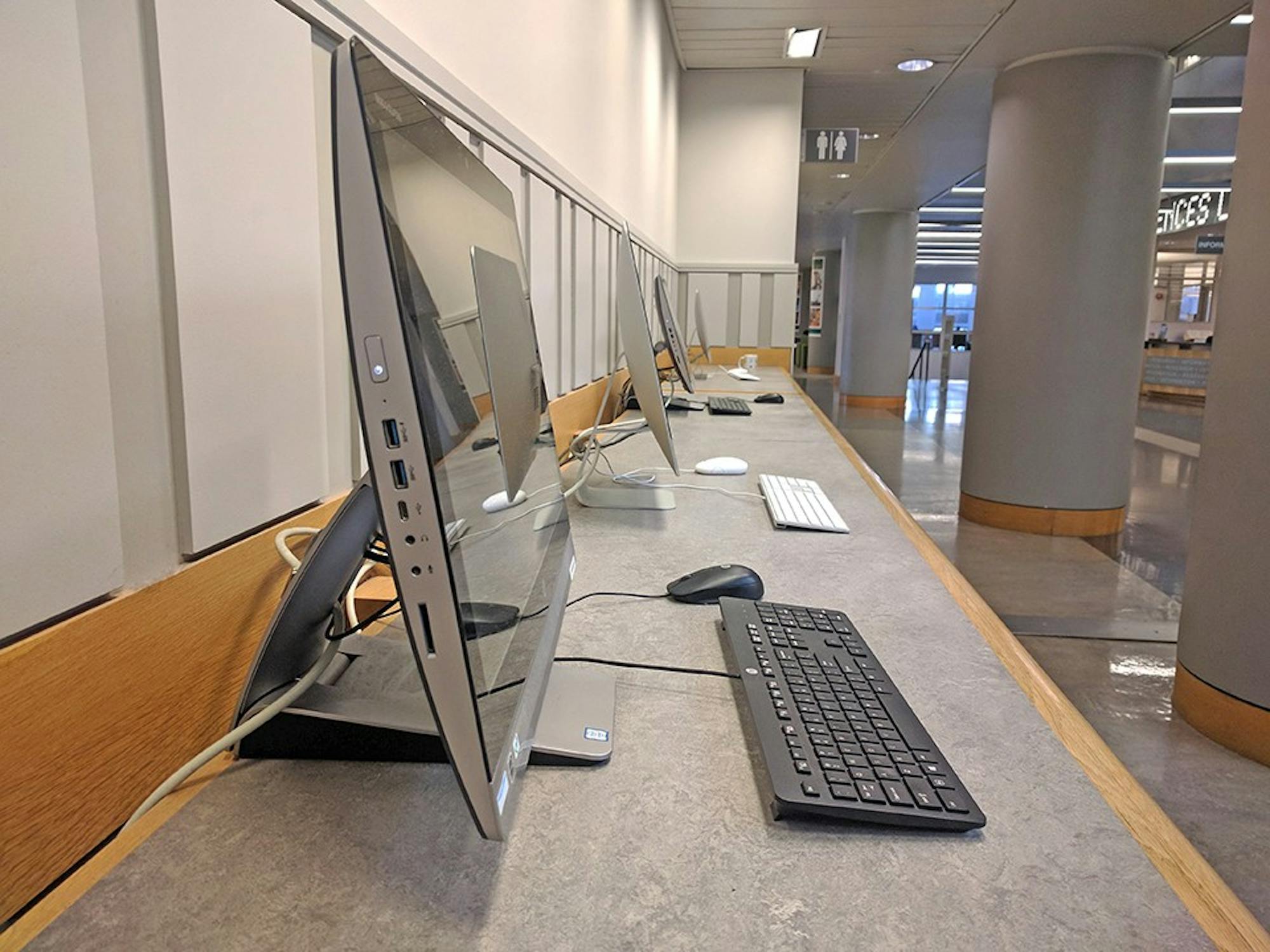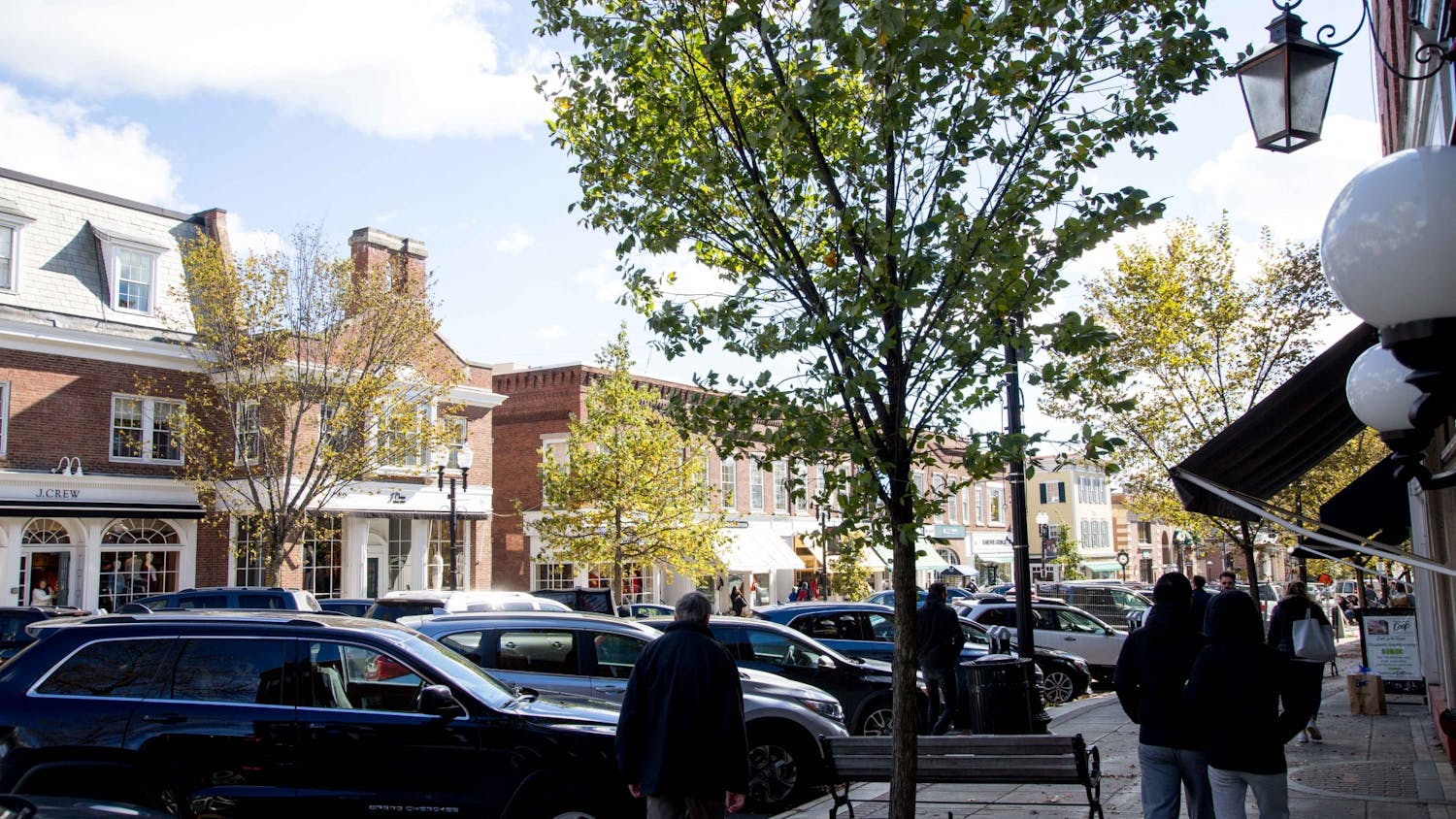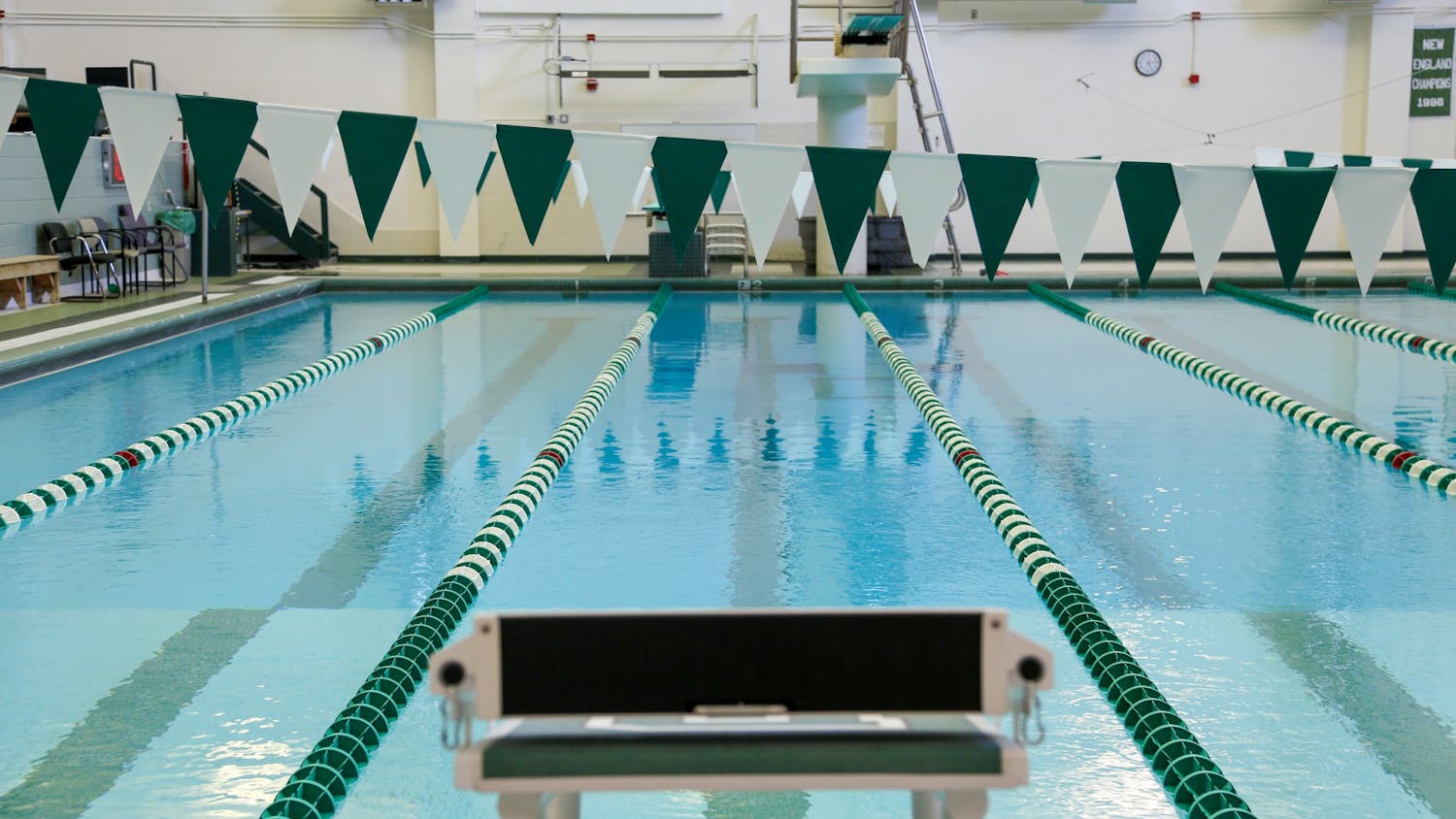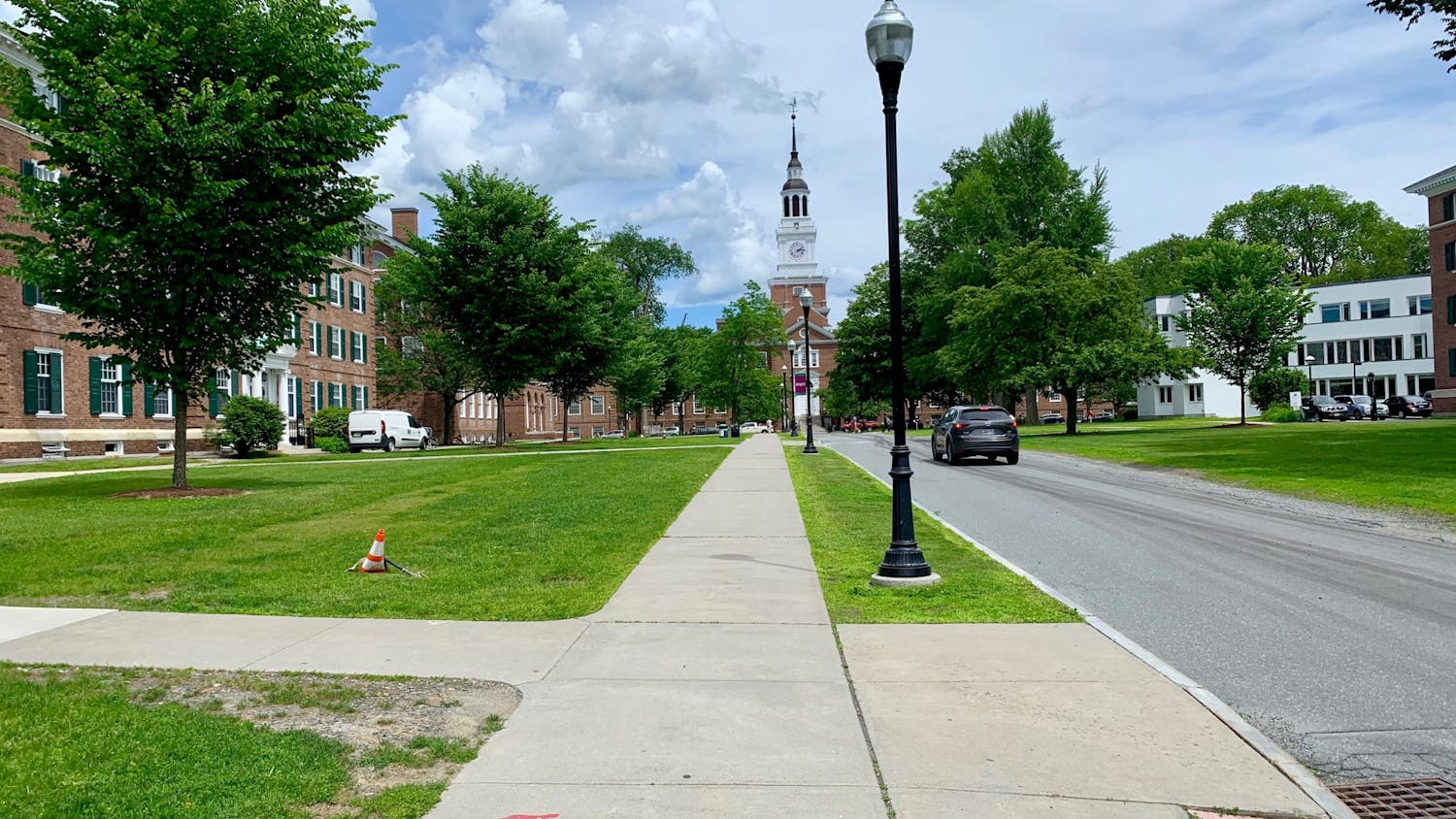That frustration you feel as your recorded lecture buffers, stalls and cuts out may be no more. Students returning to campus this fall can expect faster, more consistent internet access in dorms and other frequently used spaces, according to Dartmouth Information, Technology & Consulting.
The College has been upgrading Wi-Fi on campus — both the eduroam network and the various public networks, like Dartmouth Public and Dartmouth Library — since the summer of 2019, allocating $11 million for the project. All 2.4 GHz access points, which perform the same function as a router does in a typical home, were slated to be replaced with 6,000 new 5 GHz APs by December 2021. About 1,500 had been installed by March when operations were disrupted by COVID-19, according to network service senior director Felix Windt.
As soon as ITC and its wiring contractor were able to return to campus in late May and early June, they did so and have since been busier than at “any time I have been here since starting in 2011,” Windt said. A total of around 4,000 new APs will be installed by the beginning of the fall, two-thirds of the 6,000 needed to cover all of campus.
“They’re here on weekends, and evenings, and doing stuff at a speed that’s really unusual,” said ITC vice president and chief information officer Mitch Davis.
“The timeline, we’ve shifted very aggressively,” Windt said.“We’re pushing overtime; every wiring vendor in the Upper Valley is working for us right now. We’re really pushing hard to get the dorms done.”
The upgrades, Windt and Davis said, have been concentrated in the places where students will likely spend the most time in the fall — dormitories, libraries and dining halls. A special emphasis has been placed on residential buildings, which will have over 2,000 new APs installed by the beginning of the term. The other 500 or so new APs are spread across areas like Berry Library, Carson Library and large classrooms.
Windt said that it became clear to ITC in the spring that whatever form education took upon return to campus, it would involve more online learning than before, which necessarily means more demand on the APs in dormitories. He acknowledged that dorms have, historically, had some of the spottiest internet on campus.
“In dorms, we admit this, we know this, it wasn't great,” he said. By the start of the fall, though, every dorm will have been fully upgraded.
“We can say, if you have to take a Zoom class — not all the libraries might be able to support this, with you sitting at a table — but at the very least, from your dorm room, you will be able to take class successfully,” Windt said.
Some buildings have yet to see upgrades. Most administration buildings, for example, have yet to be switched over because they do not typically see the same level of student activity, Windt said.
The upgrade process
Before upgrades began, almost all APs on campus were 2.4 GHz, which are spaced further apart, Windt explained, because the radio waves they emit are lower frequency and can travel further. The upgraded 5 GHz APs allow for faster connections — they can operate on 20 different frequencies without interfering with one another, whereas 2.4 GHz APs can only operate on three — but they have to be spaced closer together because the range of frequencies is higher.
“What we can’t do is take the old router off the wall and stick a new one there, because they’re spaced from a time when it was all designed for 2.4 GHz,” Windt said. “With 5 GHz, you have to kind of put them closer together.”
Another challenge ITC faces is that the wiring that supports 2.4 GHz APs isn’t always enough to support 5 GHz APs, both because the wiring is outdated and because it is designed to connect APs that are further apart. Installing all new wiring, Windt said, is “a ton of work and very expensive.”
He added that many of Dartmouth’s buildings are very old and still contain asbestos material deep within the walls. While they’re “perfectly safe” to inhabit, when rewiring the walls, the ITC team has to take extra precautions to protect themselves and students.
“You have to do this overnight, you have to work with a specialty company that, basically, with a vacuum, is right under where you’re drilling so that all the dust immediately goes in a safe container, and so on,” Windt said. “It’s a pretty large project.”
Only six dorm buildings had the necessary wiring to support 5 GHz APs at the start of the upgrades, Windt said. Others had wiring dating back to the 1990s. Now, all the dorms have had their wiring upgraded, and Windt said that as soon as they get clearance to begin installing brand-new APs — the ones they ordered were, as of early August, so new that they were still being approved by the Federal Communications Commission — they would begin doing so.
One benefit of the pandemic: most buildings have very few if any people in them, meaning ITC and the wiring contractors can work without disrupting the normal flow of life.
“Right now, of course, there’s hardly any objection to doing work in buildings because there’s hardly anyone in them,” Windt said. “So that’s easy — that’s one reason we knocked out the dining hall, and so on.”
“The hardest thing about getting the dorms done was being able to get in there and do the work,” Davis said. “Well, now, the students aren’t there, and we can just stay in there and work on those things and not have to break it up into sections.”
Alleviating student concerns
Gabi Rodriguez ’23 said that when she lived in the River cluster freshman year, internet access was “super unreliable.”
“I’d have to find myself not relying on submitting my assignments out there,” she said. “I’d always have to go to the library for it.”
Nicole Evans ’22 said that she too struggled to connect reliably near the River dorms but also found issues in the library. She would frequently switch between eduroam and Dartmouth Public, she said, and connecting to printers was “iffy.”
“None of them would ever work consistently, which was annoying,” Evans said.
Davis encouraged students to report any internet issues they have to ITC, so they can be fixed quickly.
“Sometimes, students complain without actually telling us what’s wrong,” he said. “We hear about it after a month goes by. Students are pissed off about the network in the library — well that’s great. Where in the library? What’s wrong?”
That the College is putting in upgrades, Rodriguez said, is encouraging.
“It feels like a lot of us are being heard, especially after a lot of us expressed concern with the Wi-Fi,” she said. If she is on campus in the winter as she hopes she may be, she looks forward to being able to do more work in her dorm.
“I am definitely comforted by the idea that the College’s tech staff are aware of this, have foreseen this and are taking steps to alleviate what they could see as a potential problem,” said Jose Rosario ’22, who plans to return to campus in the fall.
“Obviously, it’s a different story when the rubber meets the road and students actually come to campus, and we’ll see how that plays out,” said Rosario. “But the fact that they are thinking ahead on this … is certainly promising.”
Windt said that he hopes the internet upgrades will ensure that access “just works.”
“I assume there are some students who ... would be concerned about how horrible this is going to be on Zoom in their dorms,” he said. “What I’d like them to know is not anything specifically they have to do, but just that, yes, we’ve thought of that, and we think — we really really hope — we’ve figured out that problem and we’ve solved it. It’s hopefully one less thing they have to worry about when coming back for the fall.”





